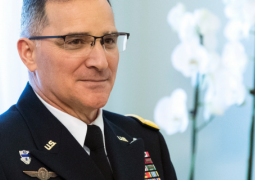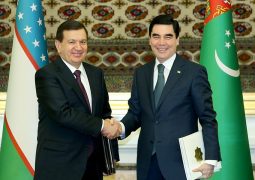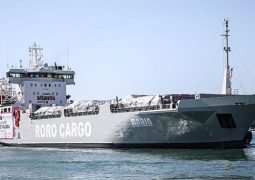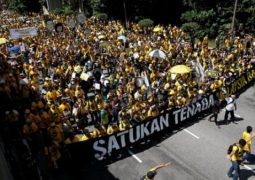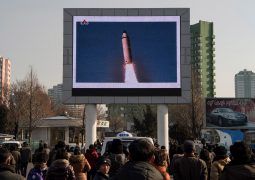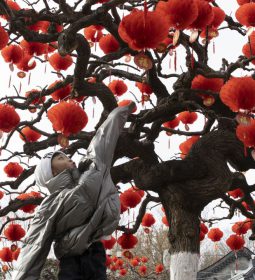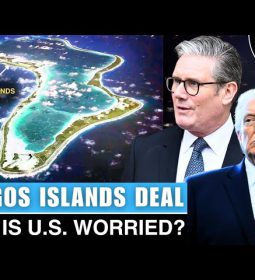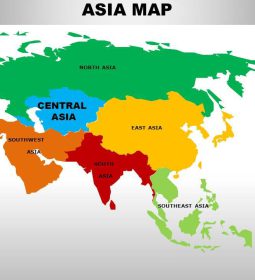State Department uses social media targeted at Iranian citizens to pressure ‘corrupt’ regime
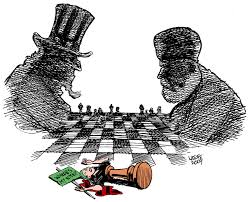
By Ben Wolfgang
02/19/2019
Washington Times
The Trump administration on Tuesday made a direct appeal to the Iranian people to reject what it called the “corrupt religious mafia” running their country, rolling out a targeted social media campaign to paint the government in Tehran as an oppressive force more focused on exporting violence and funding terrorism than caring for its own population.
In a professional-quality video produced by the State Department and posted in Farsi to Facebook, YouTube, Twitter and other platforms, top administration officials used the long-shuttered Iranian Embassy in Washington as a backdrop to excoriate Iran’s revolutionary ideology and push for radical change.
High-level sources inside the administration tell The Washington Times that they see a major opportunity to drive a wedge between the leadership in Tehran and its citizens by hammering home Iran’s working relationship with al Qaeda, its funding of Hamas and Hezbollah, and its willingness to offer sanctuary to deadly terrorists.
Special Rep. Brian Hook: The U.S. has taken good care of #Iran’s embassy in Washington, hoping that one day we can return the keys back to an Iranian government that cares more about its people and less about its destructive revolutionary ideology. A brighter future is possible. pic.twitter.com/ZQigAhjuss
— Department of State (@StateDept) February 19, 2019
The video, a major step in the broad effort to put pressure on Tehran, highlights how the U.S. government is going to great lengths to maintain the old Iranian Embassy. The facility was closed in 1979 amid the Islamic Revolution and the subsequent rise of an antagonistic, theocratic regime.
“The U.S. State Department has been maintaining it for almost 40 years, taking care of security and landscaping,” Brian Hook, the administration’s special representative for Iran, says in the video. “Even the Persian rugs and artwork are still preserved in temperature-controlled storage facilities to give back to the Iranian people once our diplomatic ties are restored. I wish I could say the same for the government of Tehran.”
The message offers a window into one piece of the administration’s multipronged strategy to deal with Iran. After withdrawing from the Obama-era Iran nuclear deal last year, President Trump has talked tough toward Tehran, reimposed a crushing set of economic sanctions and threatened to go even further to starve the nation’s economy.
The administration is pushing European allies to also exit the nuclear agreement in order to squeeze Iran further, although the annual security conference in Munich last week revealed deep and continuing rifts over Washington’s tough line against Tehran.
“The time has come for our European partners to stop undermining U.S. sanctions against this murderous revolutionary regime,” Vice President Mike Pence told the Munich gathering. “The time has come for our European partners to stand with us and with the Iranian people, our allies and friends in the region.”
But much of Mr. Pence’s argument was met with stony silence. Leading European allies are siding with Russia and China as they try to keep alive the 2015 Iran nuclear deal that Mr. Trump has denounced. Allied divisions over Iran policy were also on display at a two-day summit in Warsaw last week that many saw as a U.S. attempt to increase pressure on Tehran.
Al Qaeda link
At the same time, administration officials are increasingly focused on the alliance between Iran and al Qaeda. Some sources say the administration is attempting to lay a foundation for potential military action against Iran or its proxies using the 2001 Authorization for Use of Military Force. The law gives the president the power to attack al Qaeda and its affiliates virtually anywhere in the world.
While targeting the regime with increasingly harsh rhetoric, the White House is using a much softer approach in speaking directly to the Iranian people. The strategy isn’t new. Other administrations have tried to talk past the government in Tehran and reach the population directly.
But the Trump administration’s approach will zero in on Iran’s support for terrorism and its military adventurism and will tie the nation’s struggling economy and social unrest directly to the government’s involvement in violent wars in Syria, Yemen and elsewhere.
“The people of Iran will not achieve their enormous potential so long as the regime pursues its current course of oppression, economic mismanagement, environmental destruction and violent misadventures abroad,” Mr. Hook says in the video. “We look forward to the day when we can return the keys of this embassy to a truly representative Iranian government that is motivated not by a hateful, antiquated, revolutionary ideology but by the interests and will of the great Iranian people. The people of Iran should be free to finally make their own laws with leaders chosen by them and not by a corrupt religious mafia.”
It appears to be a promising time for such a strategy. Regional analysts say the disconnect between the regime in Tehran and its people is growing as the reimposed U.S. economic sanctions begin to bite — an opening the administration clearly hopes to exploit.
The Iranian regime “faces a restive population whose economic and political demands will not be met on the government’s current trajectory,” said an article by Ray Takeyh, a senior fellow for Middle East Studies at the Council on Foreign Relations.
“The public has given up on the notion that the regime can reform itself,” he said. “The government’s inability to clamp down on demonstrations and strikes augurs poorly for its future. The Islamic Republic and its constituents are on different wavelengths. The public would like more freedom and a less expansive foreign policy; the mullahs, just the reverse. But how long this incongruity can last is an open question.”
The Washington Times welcomes your comments on Spot.im, our third-party provider. Please read our Comment Policy before commenting.
- Previous Eternal conflict between South Asian neighbors boiling again: Pakistan warns that Afghan talks will be affected if India retaliates over Kashmir
- Next India plans to buy 21 MiG-29 jet fighters from Russia




